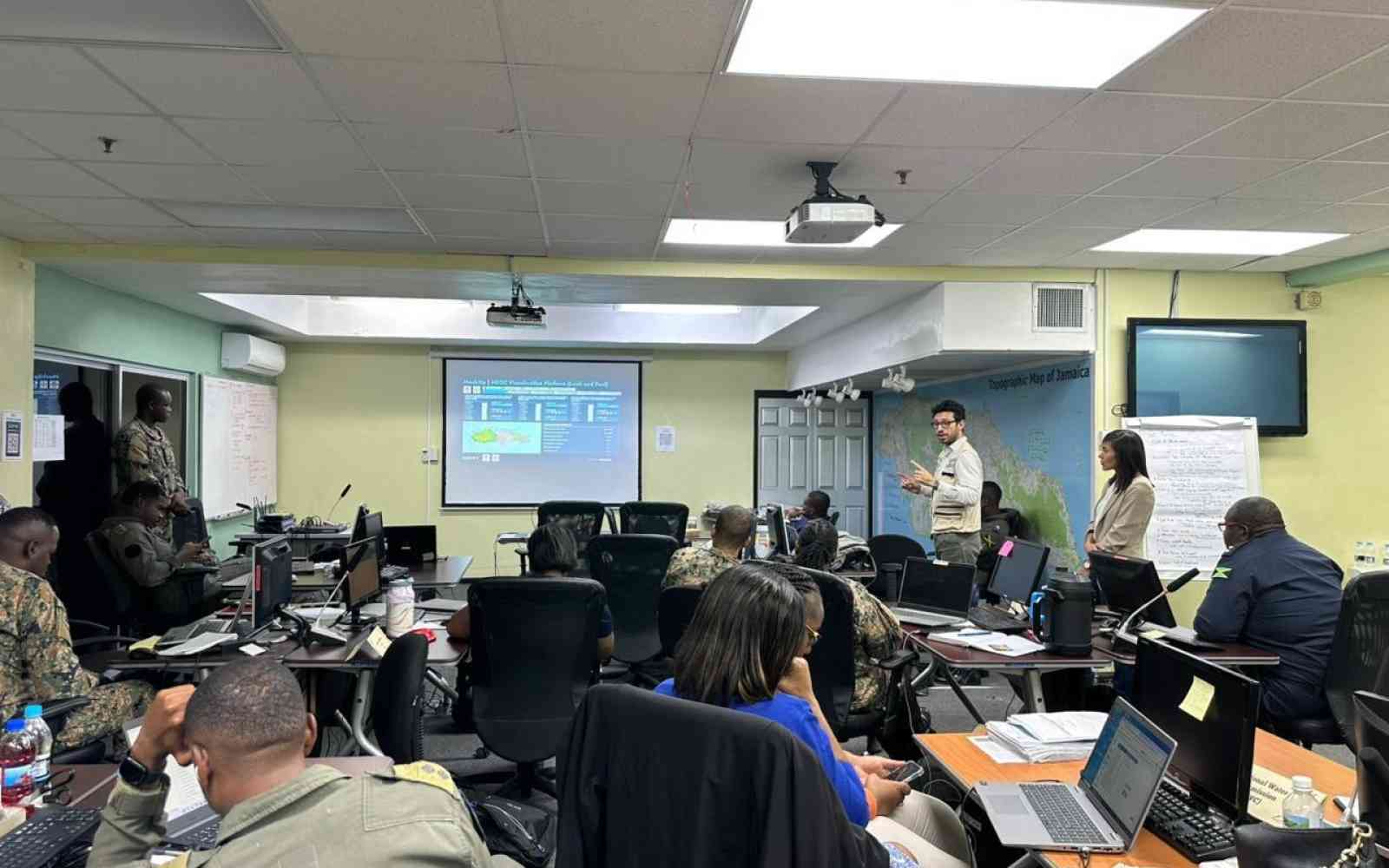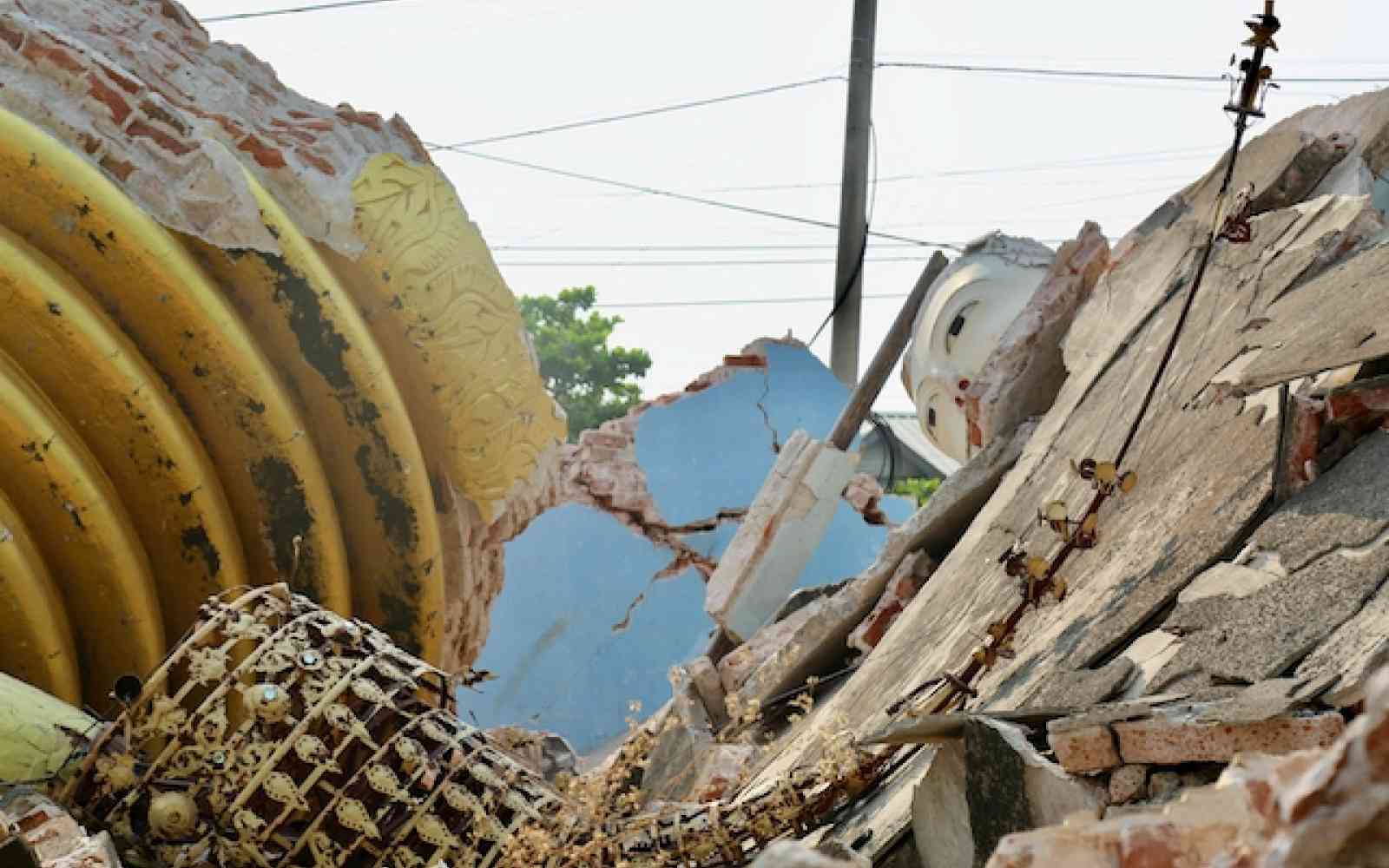The United Nations Office for Project Services (UNOPS)

Bringing life-saving supplies into Yemen
In the midst of the worst humanitarian crisis in the world, UNOPS is helping to ensure essential goods continue to flow into Yemen to reach people in need.
The current conflict in Yemen has resulted in a widespread and devastating humanitarian crisis. It has left more than 80 per cent of the population in dire need of humanitarian assistance. According to estimates of the UN Office for the Coordination of Humanitarian Affairs (OCHA), by early 2019, 24 million people were in need in the country, and over 10 million people faced severe food insecurity.
- This is an edited version of a story originally published in Hidden Champions – the first comprehensive account ever to be written about UNOPS that reveals unique stories from the organization.

I think UNVIM has been doing a remarkable job […] I am absolutely sure that UNVIM has been doing its work with a lot of professionalism [...]
As part of its efforts to facilitate access to essential commodities, UNOPS is working with partners in Yemen to meet basic needs. To facilitate the inflow of commercial goods, UNOPS, in partnership with OCHA established the United Nations Verification and Inspection Mechanism (UNVIM) for Yemen in December 2015, on behalf of the government of Yemen, the United Nations and its Member States. UNVIM was created to oversee the monitoring and inspection services of commercial and bilateral assistance cargo destined for Yemeni Red Sea ports, which are not under the control of the government of Yemen.
Since its establishment, there have been a number of challenges often found in fast-changing, active, conflict situations. In response, UNOPS has worked together with the main stakeholders to establish solutions to deliver on the mandate of the mechanism in the most efficient way.
Setting up its operations in Djibouti, UNVIM developed a range of procedures to avoid significant delays and blockages in delivering goods to people in Yemen.
We are extremely pleased to have had the opportunity to develop a solution to an issue that was increasing the current challenges that Yemen and its people are dealing with. In operationalizing UNVIM, UNOPS, together with our partners, [has been] able to contribute to efforts to provide access to essential items and goods to the people of Yemen.”
Read the Q&A with Farouk Hirzalla, UNVIM Project Manager
Why was this project so important?
Impediments on commercial imports to Yemen have led to severe lack of basic items. In order to address the dire humanitarian situation in Yemen, the restoration of regular commercial cargo flows into the country is essential.
What challenges stood in the way of success and how did you overcome them?
The UNVIM project has been operating in a rapidly evolving environment affected by conflict. Working in these types of environment is by itself very challenging; however, UNVIM has been very lucky to work with the partners and stakeholders gathered around one goal – to help the people of Yemen. Whenever there was a specific challenge or an issue, we always worked closely with our partners to bring the issue to an effective solution. For example, we worked with our partners to decrease the amount of time that it takes to issue a clearance, starting from 48 hours at the beginning of UNVIM operations, to the most recent figure of 10 hours. We also hold monthly meetings for UNVIM, gathering all the main stakeholders and partners, and use that forum to jointly discuss any issues that may come up and how to best resolve them in a speedy manner.
What did the project achieve?
Between May 2016 and December 2018, the mechanism has received 1,071 clearance requests and granted 875 clearances with 271 vessel inspections in international waters and territorial waters. During the same period, the mechanism has facilitated the delivery of over 10 million tonnes of food, fuel and supplies to the ports of Hodeidah, Ras Isa and Saleef.
What feedback have you had?
The achievements of UNVIM have been recognized and commended by senior UN officials. It has also been praised in several high-level reports to the UN Security Council, and by the UN Secretary-General, the UnderSecretary-General for Humanitarian Affairs and Emergency Relief Coordinator, as well as fellow UN agencies.


Visit the UNVIM website to access all the latest information on the monitoring and inspection of commercial and bilateral assistance cargo destined for Yemeni Red Sea ports.
In addition to ensuring sufficient infrastructure and procedures to operate the mechanism, UNOPS directly engaged with stakeholders, including in the shipping lines, to answer their queries and encourage them to return to Yemen’s Red Sea ports. This work has enabled UNVIM to become a source of reliable commercial data on imports to areas of Yemen not under the control of the government. “The statistics and analyses are shared with international organizations, NGOs, and other relevant stakeholders working in Yemen,” said Farouk. The project team also worked closely with the government of Yemen, hosting an official of the Ministry of Transport, who supported in expediting clearances for the commercial cargo shipments.
Between 5 May 2016 and 31 December 2018, 875 commercial vessels were cleared, out of which 271 vessel inspections were undertaken in order to confirm compliance with the relevant UN Security Council Resolutions. This has facilitated the delivery of over 10 million tonnes of food, fuel and supplies to the ports of Hodeidah, Ras Isa and Saleef. Following an agreement at peace talks between the Yemeni parties in Sweden that was reached in December 2018, UNVIM will now also undertake an enhanced monitoring and inspection role. “We are ready to provide whatever support is envisaged necessary to implement the agreement and support efforts to bring peace to Yemen,” said Farouk.










